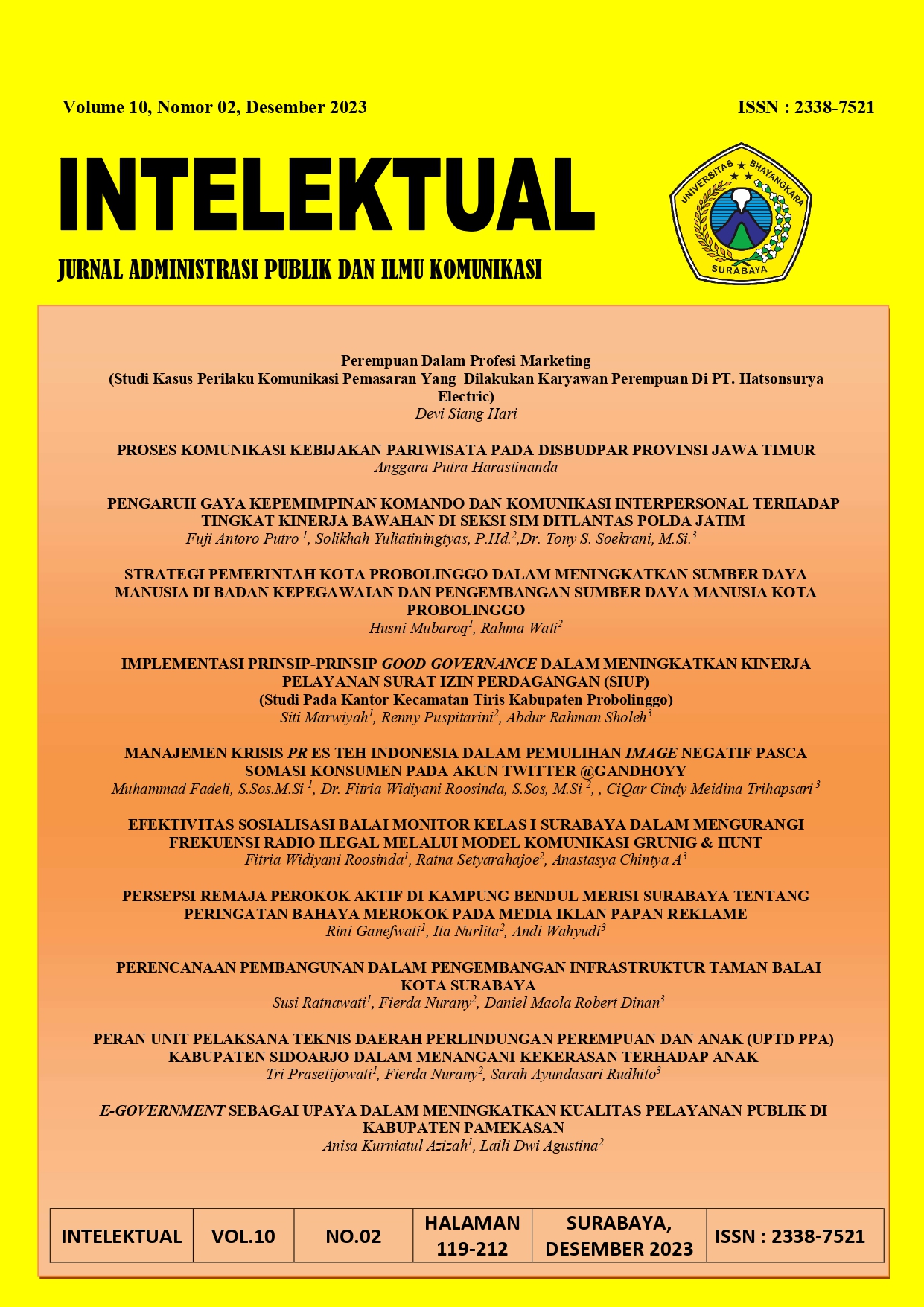E-Government Sebagai Upaya Dalam Meningkatkan Kualitas Pelayanan Publik Di Kabupaten Pamekasan
Main Article Content
Abstract
The purpose of this study is to analyze and study E-Government as an effort to improve the quality of public services in Pamekasan Regency. Pamekasan Regency applies the concept of E-Government in the form of an application, but is still experiencing difficulties in the development planning process. This research is a qualitative research with research subjects namely Pamekasan Regency. The research method used is observation and documentation techniques. The results of the study show that the government has succeeded in innovating in the form of "Pamekasan Smart" with the aim of making it easier for the public to report various problems related to development in Pamekasan Regency, but there are still inhibiting factors such as Skill Gaps. In order to overcome this, the government made several efforts such as signing an MoU with UPT BPSDMP Kominfo Surabaya. Thus, the government must be able to utilize human resources who are competent in Smart Government according to their respective fields so that later they can optimally manage the implementation of E-Government in public services.
Article Details

This work is licensed under a Creative Commons Attribution 4.0 International License.
Authors who publish with Intelektual: Jurnal Administrasi Publik dan Ilmu Komunikasi agree to the following terms:
- The author retains copyright licensed under Creative Commons Attribution-NonCommercial 4.0 (CC BY-NC 4.0), which allows others to remix, adapt, and expand on the author's work non-commercially, and even if someone else's new work must also acknowledge the author and is non-commercial, they do not need to license their derivative works on the same terms.
- Authors are permitted and encouraged to post their work online (e.g., in institutional repositories or on their websites) before and during the submission process, as this can lead to productive exchange, as well as earlier and greater citation of the published work ( See Impact of Open Access). Authors can archive preprints and postprints or publisher/PDF versions.

